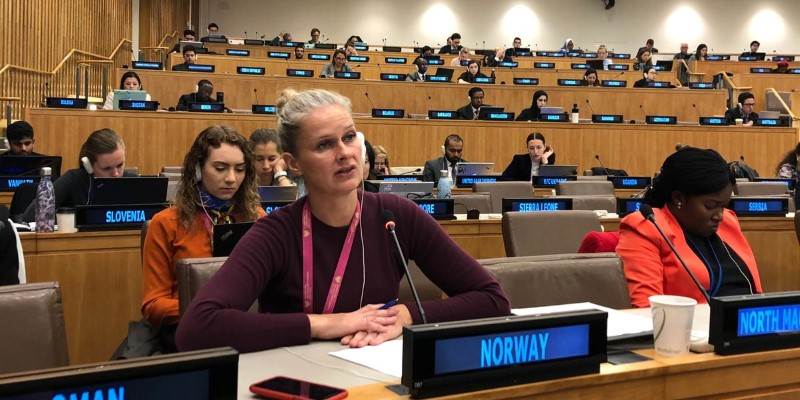Chair,
With the Global Compact on Refugees, affirmed by the UN General Assembly in 2018, the New York Declaration of 2016 and the Comprehensive Refugee Response Framework, we have a strengthened and consolidated foundation for the international community’s efforts to address the refugee situations of our time.
Norway is a strong supporter of the Global Compact. We share the ambition of making the forthcoming first Global Refugee Forum a successful vehicle for more equitable sharing of burdens and responsibilities, in line with the Compact. It is important to take a long-term perspective that will benefit both refugees and host communities.
The High Commissioner for Refugees estimates that, by the end of last year, some 70,8 million people had been forced from their homes as a result of armed conflict and violence. Among these are 41,3 million internally displaced persons, and the number is growing. We urgently need to find ways to better protect IDPs and achieve durable solutions. In this regard, the announcement last week by the UN Secretary General to establish a High-level Panel on Internal Displacement is welcome. This provides a unique opportunity to galvanise international engagement in support of states with situations of internal displacement.
Chair,
Protection of refugees and a comprehensive response to refugee situations will continue to be a priority in Norway’s humanitarian policy, as outlined in our humanitarian strategy launched last year. This includes continuing to give priority to education in situations of crisis and conflict.
There is a need to strengthen the humanitarian response to sexual and gender-based violence, including in situations of displacement. SGBV was the focus of an international conference in Oslo in May that resulted in important financial and political commitments, and concluded that leaders at all levels should give immediate priority to combating SGBV across all sectors. It also highlighted the fact that, while women and girls are particularly vulnerable, men and boys are also affected.
The Fourth Review Conference on the Mine Ban Action will take place in Oslo on 25-29 November. As Presidency, our priority is protection of affected communities and groups who are particularly vulnerable, including refugees and internally displaced. UNHCR has a key role in providing risk education on landmines and explosives for refugees who are returning to heavily contaminated areas in Syria, Iraq and other post-conflict areas – until the threat can be removed from the ground.
Chair,
Norway strongly supports the Secretary-General’s initiative on UN reform and recognises the important efforts by UNHCR in this area. We encourage UNHCR to continue its work to fully implement the two resolutions on reform of the operational activities of the UN, A/RES/71/243 and A/RES/72/279.
Norway will continue to be a strong supporter of UNHCR and its mandate, and remains committed to providing un-earmarked funding to enable well-coordinated, rapid and effective assistance, in line with our commitment to the Grand Bargain. Our core contribution for 2019 was record-high. In addition – and for the first time – we have made an indicative multi-year pledge of un-earmarked funding to UNHCR, subject to annual parliamentary approval.
Thank you.
